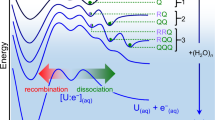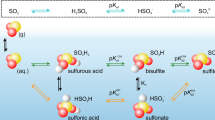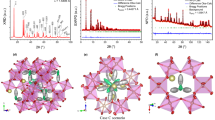Abstract
I AM very glad that Mr. Pickering has given further details of his experiment. From his former letter I did not gather that the number of acting units indicated by the freezing-point of the solution of 100H2O+H2SO4 in acetic acid was as low as now appears. The result is most interesting, and seems to me to furnish strong evidence for the modification of the dissociation theory for which I am contending, under the belief that, in spite of the last paragraph of Mr. Pickering's present letter, it furnishes the best explanation of all the facts. Had the number of acting units indicated been nearer 100—say 90, or more—it would have been possible to explain the experiment in the first way which I suggested, for the freezing-point of a solution of water in acetic acid shows that some of the solute molecules are polymers of H2O (Raoult's value for the molecular depression is 33˙0, as compared with 38˙8 found from Van't Hoff's formula, which agrees well with Raoult's values for other substances). This would reduce the number of acting units in the case of the mixed solution also, and even complete dissociation of the sulphuric acid would be insufficient to bring that number up again to 100.
This is a preview of subscription content, access via your institution
Access options
Subscribe to this journal
Receive 51 print issues and online access
$199.00 per year
only $3.90 per issue
Buy this article
- Purchase on SpringerLink
- Instant access to the full article PDF.
USD 39.95
Prices may be subject to local taxes which are calculated during checkout
Similar content being viewed by others
Author information
Authors and Affiliations
Rights and permissions
About this article
Cite this article
WHETHAM, W. The Theory of Dissociation into Ions. Nature 56, 29–30 (1897). https://doi.org/10.1038/056029e0
Issue date:
DOI: https://doi.org/10.1038/056029e0



